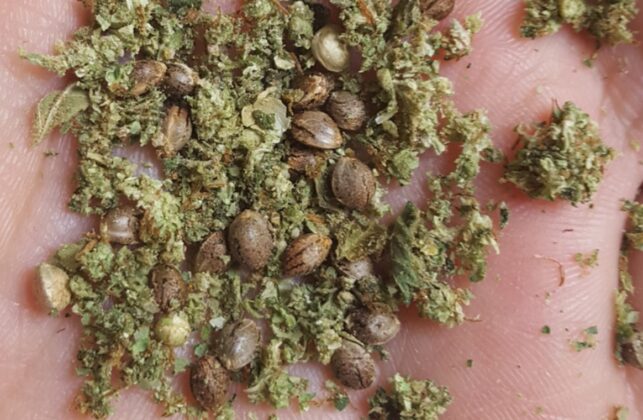In the realm of sustainable agriculture, an unforeseen player has emerged, bringing with it a myriad of options and opportunities—the humble hashish seed. Often related with recreational and medicinal use, hashish seeds are now attaining interest for their prospective part in advertising and marketing sustainability in agriculture. In this write-up, we’ll discover how hashish seeds can contribute to sustainable farming techniques, from soil wellbeing to source performance.
Nutrient-Loaded Soil Amendment:
Hashish vegetation are known for their capability to prosper in a wide variety of soil problems. Their deep root programs increase soil framework and promote aeration, which can be specially helpful for crops that stick to in their footsteps. On top of that, cannabis crops are successful nutrient accumulators, absorbing extra vitamins from the soil. When these plants are harvested, the nutrient-rich leaves and stems can be returned to the soil as natural matter, enriching it by natural means and lowering the need for synthetic fertilizers.
check out the post right here and Companion Planting:
In sustainable agriculture, preserving biodiversity is essential for ecosystem stability. Hashish plants can engage in a purpose in this by serving as companion vegetation. Their special compounds, these types of as terpenes, can act as all-natural pest deterrents, preserving neighboring crops from dangerous insects. Integrating cannabis into a numerous planting scheme can lead to a extra resilient and self-sustaining ecosystem, cutting down the reliance on chemical pesticides.
Carbon Sequestration:
As the planet grapples with the difficulties of local weather change, the significance of carbon sequestration in agriculture are not able to be overstated. Cannabis vegetation are renowned for their immediate development and superior carbon uptake all through photosynthesis. By incorporating hashish into crop rotations, farmers can add to carbon sequestration, mitigating the impacts of greenhouse fuel emissions. This solution aligns with sustainable farming practices aimed at developing healthier, carbon-loaded soils.
Water Effectiveness:
Drinking water shortage is a urgent situation in agriculture, prompting the want for water-efficient crops. Hashish plants show a extraordinary skill to thrive in varied climates with varying h2o availability. Their deep roots enable them to accessibility water from further soil levels, reducing opposition with shallower-rooted crops. By strategically integrating cannabis into farming methods, especially in locations facing drinking water difficulties, farmers can enhance h2o use and endorse sustainable h2o management procedures.
Regenerative Farming Methods:
Regenerative agriculture focuses on restoring and maximizing the health and fitness of the soil ecosystem. Cannabis, with its versatile and resilient nature, can be a critical player in regenerative farming. The cultivation of cannabis using regenerative procedures, these types of as negligible tillage and protect cropping, can assistance stop soil erosion, strengthen h2o retention, and improve in general soil fertility. This holistic approach to farming aligns with the principles of sustainability, making sure the extended-time period wellbeing and productivity of the land.
Summary:
In the evolving landscape of sustainable agriculture, cannabis seeds are rising as a important source for farmers in search of ground breaking and eco-pleasant solutions. From soil overall health to h2o efficiency, the varied characteristics of hashish plants offer you a multifaceted tactic to addressing the problems confronted by modern day agriculture. As we keep on to discover the likely of hashish seeds in sustainable farming practices, it results in being obvious that this unassuming seed could keep the crucial to a greener, additional resilient long term for our planet’s foods output.

